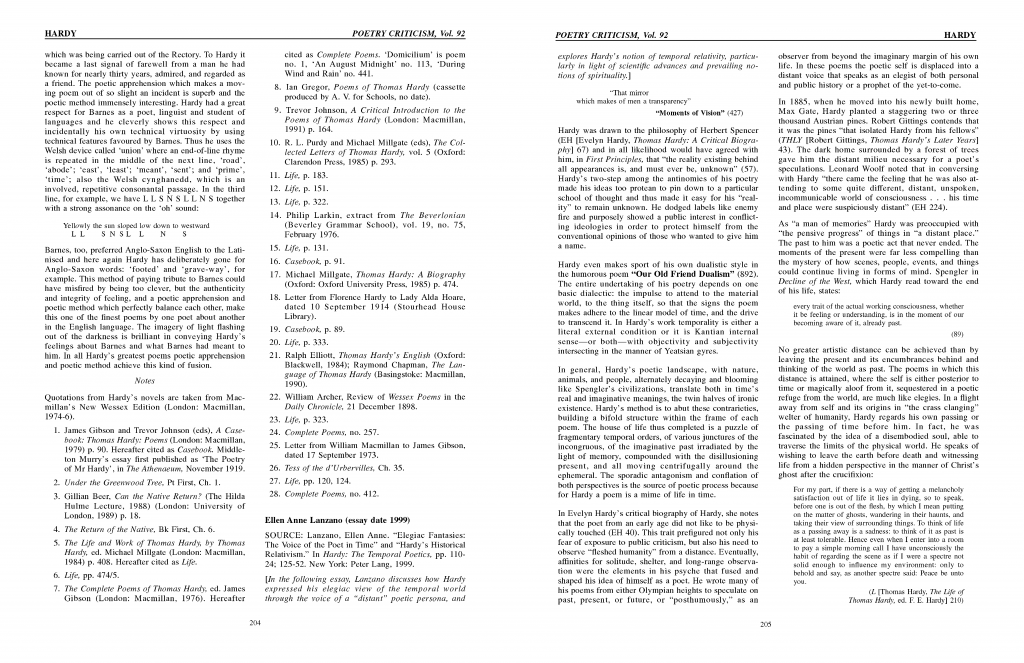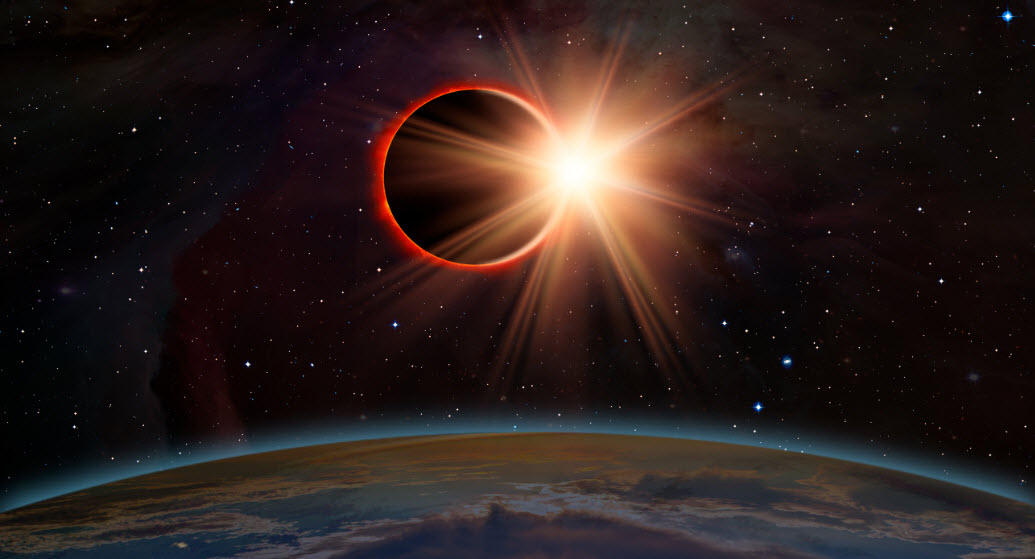North America will experience a solar eclipse on August 21, and while the cosmic event will affect the entire continent, a small swath will fall in the ominously termed “path of totality,” where the moon will completely block the sun from view for some two minutes. After settling on a viewing location and securing specialty eyewear, readers can continue their eclipse preparations by turning to Literature Criticism Online for literary reflections on the subject.
Fair warning: it gets dark.
Thomas Hardy, treated in Poetry Criticism Vol. 92, was a major late-Victorian novelist and an important poet of the early twentieth century. He also took a pessimistic attitude toward human affairs, and is reported by his biographer, Evelyn Hardy, to have seen astronomy as “a ‘tragic’ study, the results of which are to dwarf human significance into nightmare insignificance; a study of stellar bodies and chasms brings not only unendurable loneliness but overpowering ‘pulsations of horror.’” Hardy’s “At a Lunar Eclipse,” was probably written around 1867 and may have been inspired by the only lunar eclipse viewable in Great Britain that year, which occurred on September 13, just after midnight. He offered a tempered reflection on the experience:
Thy shadow, Earth, from Pole to Central Sea,
Now steals along upon the Moon’s meek shine
In even monochrome and curving line
Of imperturbable serenity.
How shall I link such sun-cast symmetry
With the torn troubled form I know as thine,
That profile, placid as a brow divine,
With continents of moil and misery?
And can immense Mortality but throw
So small a shade, and Heaven’s high human scheme
Be hemmed within the coasts yon arc implies?
Is such the stellar gauge of earthly show,
Nation at war with nation, brains that teem,
Heroes, and women fairer than the skies?
Analyzing the poem in her essay “Elegiac Fantasies: The Voice of the Poet in Time,” Ellen Anne Lanzano noted that “the ultimate irony against the background of this celestial vastness is that even ‘immense’ death throws ‘So small a shade’ in its banality.”

More than a century later, American poet Jim Harrison, treated in Contemporary Literature Criticism 348, offered a melancholy meditation on earthly banalities with the 1996 poem “The Davenport Lunar Eclipse.” The speaker, dining and drinking alone at a waterfront bar along the Mississippi, is diverted from attention to the heavens as he contemplates turning fifty-one—an age he never thought he would reach—and observes the tender and “lovely way / homely old men treat their homely old women” in the Midwest, touching one another “over green Jell-O with pineapple and fried ‘fish rectangles’ for $2.95.” Squinting up the river he sees the moon “losing its edge to black.” Returning to his room he can neither hear the river nor see the eclipse but thinks to himself that “It’s very difficult to look at the World / and into your heart at the same time.”
As an antidote to Hardy’s and Harrison’s lunar melancholy, read Annie Dillard’s 1982 essay “Total Eclipse,” which describes her mesmerizing experience of exactly the sort of event that will happen on August 21. Dillard, treated in Contemporary Literature Criticism 216, emphasizes in the essay the large difference between a partial and a total eclipse: “Seeing a partial eclipse bears the same relation to seeing a total eclipse as kissing a man does to marrying him, or as flying in an airplane does to falling out of an airplane.” Viewing the eclipse with her husband, Gary, from a hillside in central Washington, Dillard is shocked out of the routines and normality of everyday life by the immensity of the experience: “My mind was going out; my eyes were receding the way galaxies recede to the rim of space. Gary was light years away, gesturing inside a circle of darkness, down the wrong end of a telescope. He smiled as if he saw me; the stringy crinkles around his eyes moved. The sight of him, familiar and wrong, was something I was remembering from centuries hence, from the other side of death: yes, that is the way he used to look, when we were living.” In her essay “Mystical Experience in Annie Dillard’s ‘Total Eclipse’ and ‘Lenses,’ ” Dana Wilde explained how Dillard’s work illustrates a moment of transcendence, how Dillard “is so comfortable in the everyday world that a glimpse of reality—even just the actual, experienceable speed of the Moon—is terrifying.”
If the implications of solar darkness threaten to be overwhelming, perhaps the best approach is simply to heed the ancients. Sima Qian, Chinese historian and Grand Astrologer at the court of Wu during the Han dynasty, counseled in his Treatise on the Celestial Offices (c. 100 B.C.): “If there is a solar anomaly, practice virtue.”
And in any event, don’t look directly at the sun without those funny glasses.
Interested in learning more about Gale’s literature offerings? Let us know! yeezy wave runner 700 retail price chart 350 V2 “Asriel” (Carbon) October 2020

